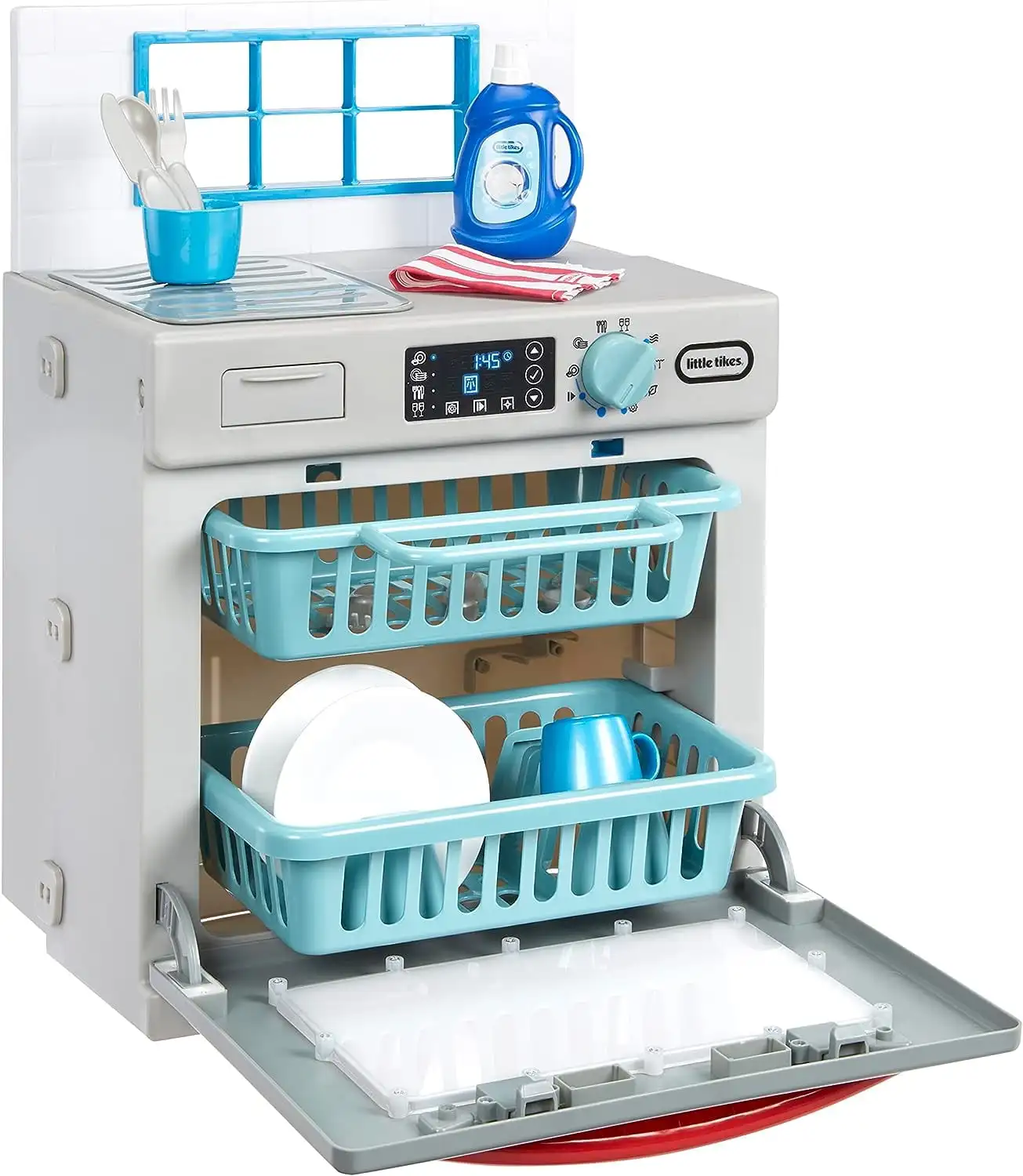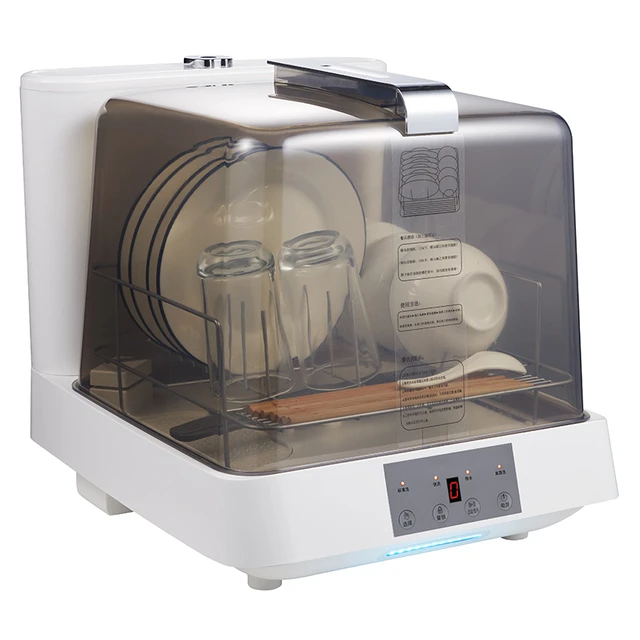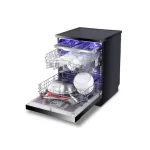Introduction
A clogged dishwasher can be a frustrating issue, causing problems with water drainage and interfering with the cleaning process. One common misconception is that overcrowding the dishwasher with too many dishes can lead to clogs. In this guide, we will explore whether overcrowding is a significant cause of dishwasher clogs. By examining the factors that contribute to dishwasher clogs and considering the impact of overcrowding, we can gain a better understanding of how to prevent and address this issue effectively..

Is a clogged dishwasher caused by overcrowding?
Understanding Dishwasher Clogs
1.1. Common Causes of Clogs
Dishwasher clogs can be caused by a variety of factors, including food particles, soap residue, grease buildup, and hard water deposits. These materials can accumulate in the dishwasher’s drain, filter, or spray arms, leading to blockages that hinder water flow and affect the dishwasher’s performance.
1.2. Symptoms of a Clogged Dishwasher
Symptoms of a clogged dishwasher may include standing water in the bottom of the dishwasher, poor cleaning results, unusual noises during the cycle, and water leakage. Recognizing these symptoms can help identify a clog and prompt action to address the issue.
Overcrowding and Dishwasher Performance
2.1. Dishwasher Design and Capacity
Dishwashers are designed with specific capacities in mind, which determine the number of dishes they can effectively accommodate in a single load. Overcrowding the dishwasher beyond its recommended capacity can potentially affect its performance, including water distribution and drainage.
2.2. Impact on Water Flow
Overcrowding the dishwasher can disrupt the water flow within the appliance. When dishes are packed tightly together, water may not be able to reach all the surfaces and crevices, resulting in subpar cleaning. Additionally, overcrowding can impede proper water drainage, leading to standing water in the dishwasher after a cycle.

Factors Contributing to Dishwasher Clogs
3.1. Food Particles
Food particles are a common cause of dishwasher clogs. When dishes are not properly rinsed before loading them into the dishwasher, food can accumulate in the filter, spray arms, and drain. Over time, this buildup can lead to clogs and affect the dishwasher’s performance.
3.2. Soap Residue
Excessive use of dishwasher detergent or using the wrong type of detergent can lead to soap residue buildup. This residue can accumulate in the dishwasher’s components, hindering water flow and contributing to clogs.
3.3. Grease Buildup
Grease and oil from dishes can accumulate over time, particularly when dishes are not adequately pre-rinsed. This grease can solidify and adhere to the dishwasher’s components, causing clogs and affecting water flow.
3.4. Hard Water Deposits
Mineral deposits from hard water can accumulate in the dishwasher, particularly in areas with high mineral content in the water supply. These deposits can contribute to clogs and affect the dishwasher’s performance.

The Impact of Overcrowding on Dishwasher Clogs
4.1. Increased Food Particle Accumulation
Overcrowding the dishwasher can make it more difficult for water and detergent to reach all areas of the dishes, increasing the likelihood of food particles remaining on the dishes. These particles can then accumulate in the dishwasher’s components, contributing to clogs.
4.2. Hindered Water Flow and Drainage
When dishes are overcrowded, water may not be able to circulate effectively, resulting in poor cleaning and rinsing. Additionally, overcrowding can impede proper water drainage, leading to standing water in the dishwasher after a cycle.
4.3. Reduced Access for Maintenance
Overcrowding can make it more challenging to access and clean the dishwasher’s filter, spray arms, and other components. Regular maintenance is crucial for preventing clogs, and overcrowding can hinder these routine cleaning tasks.
Preventative Measures for Dishwasher Clogs
5.1. Proper Dish Loading
To minimize the likelihood of dishwasher clogs, it is important to load dishes properly, allowing adequate space for water and detergent to circulate. Follow the manufacturer’s guidelines and recommendations for dish loading, ensuring that dishes are arranged in a way that promotes efficient cleaning and rinsing.
5.2. Pre-Rinsing Dishes
Pre-rinsing dishes before loading them into the dishwasher can help remove excess food particles and reduce the risk of clogs. Scrape off large food remnants and rinse dishes to remove any lingering debris.
5.3. Using the Correct Detergent
Using the appropriate dishwasher detergent for your water hardness level is crucial. Hard water may require specialized detergents that help prevent mineral buildup and reduce the risk of clogs. Follow the manufacturer’s instructions and use the recommended amount of detergent for each load.
5.4. Regular Maintenance
Regular maintenance is essential for preventing dishwasher clogs. Clean the dishwasher’s filter, spray arms, and other components regularly to remove any debris or buildup. Additionally, consider using dishwasher cleaning agents periodically to remove soap residue, grease, and hard water deposits.
Addressing Dishwasher Clogs
6.1. Manual Removal
If a dishwasher clog occurs despite preventative measures, manual removal may be necessary. Access the dishwasher’s drain, filter, and spray arms and physically remove any visible clogs using appropriate tools. Exercise caution to avoid damaging the dishwasher’s components during the process.

6.2. Seeking Professional Assistance
If clogs persist or if you are unsure about handling manual removal, it is recommended to seek professional assistance. A plumber or appliance repair technician can assess the situation, diagnose the cause of the clog, and address it effectively.
Troubleshooting Other Causes of Dishwasher Clogs
7.1. Spray Arm Blockage
In addition to the factors mentioned earlier, clogs can also occur due to blockages in the dishwasher’s spray arms. Over time, food particles, soap residue, or hard water deposits can accumulate within the spray arm nozzles, hindering the proper distribution of water. To troubleshoot this issue, remove the spray arms and clean them thoroughly to remove any debris or buildup.
7.2. Drain Hose Obstruction
Another potential cause of dishwasher clogs is an obstruction in the drain hose. This can occur if food particles, grease, or foreign objects get lodged in the hose, impeding proper water drainage. Inspect the drain hose and remove any obstructions to restore efficient draining.
7.3. Pump Impeller Issues
The dishwasher’s pump impeller, responsible for circulating water throughout the appliance, can also become clogged or damaged. In such cases, the dishwasher may not drain properly or exhibit poor cleaning results. If you suspect an issue with the pump impeller, it is advisable to seek professional assistance for repair or replacement.
Additional Tips for Optimal Dishwasher Performance
8.1. Scrape Off Excess Food
To minimize the risk of clogs, it is recommended to scrape off excess food from dishes before loading them into the dishwasher. This simple step helps prevent food particles from entering the dishwasher and causing blockages.
8.2. Use Rinse Aid
Using a rinse aid in your dishwasher can help improve cleaning and drying performance. Rinse aids aid in the removal of water spots and enhance water sheeting action, ensuring that dishes come out clean and spot-free. Follow the manufacturer’s instructions for the proper use of rinse aid in your dishwasher.
8.3. Regularly Clean the Filter
The dishwasher’s filter plays a crucial role in trapping food particles and debris to prevent them from entering the dishwasher’s components. Regularly clean the filter to remove any accumulated debris, ensuring optimal dishwasher performance and reducing the risk of clogs.
8.4. Soften Hard Water
If you have hard water in your area, consider using a water softener or installing a water softening system for your entire home. Softening the water can help prevent the buildup of mineral deposits in your dishwasher, reducing the risk of clogs and improving its overall performance.

Conclusion
While overcrowding the dishwasher can potentially affect its performance, it is not a direct cause of clogs. Dishwasher clogs are primarily caused by factors such as food particles, soap residue, grease buildup, and hard water deposits. Overcrowding can contribute to these issues indirectly by hindering water flow and drainage. To prevent clogs, it is important to practice proper dishwasher loading, pre-rinse dishes, use the correct detergent, and perform regular maintenance. By understanding the factors contributing to dishwasher clogs and implementing preventative measures, you can maintain optimal dishwasher performance and reduce the risk of clogs in your appliance.


